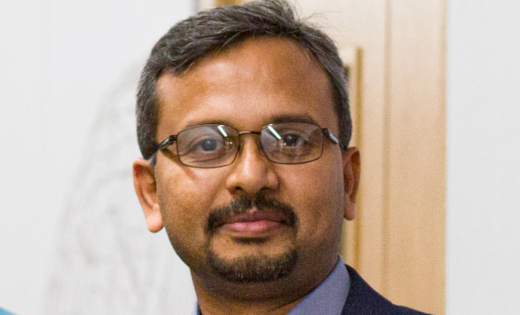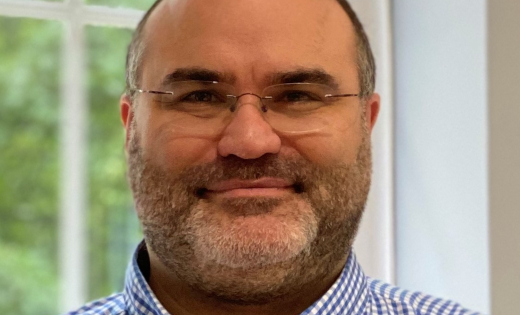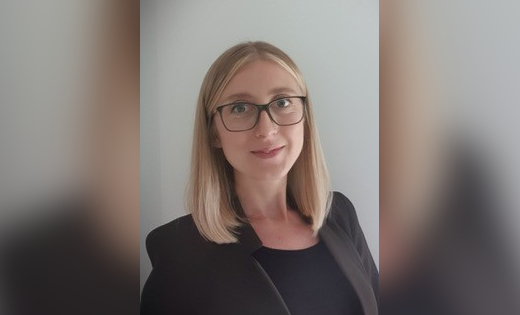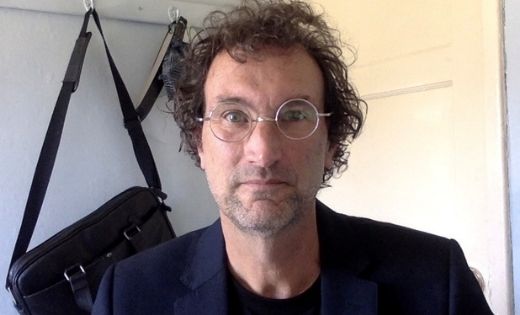Celebrate Our Staff – October 2021
Here we celebrate our colleagues’ achievements across the University this past month.
The Centre for Enterprise and Entrepreneurship Studies (pictured) was involved in two projects that received exemplar status

Small Business Charter award for Business School
Leeds University Business School (LUBS) has received the Small Business Charter award – a mark of ‘true excellence’.
The award celebrates the role business schools play in supporting small businesses, local economies and student entrepreneurship.
LUBS has been awarded the accreditation for three years and has now been given exemplar status for its entrepreneur-in-residence ‘Enterprise Ambassador’ programme and its unique cross-University student ‘With Enterprise’ programmes.
Julia Bennell, Executive Dean of LUBS, said: “The exemplars recognise true excellence, and to receive two is outstanding.
“I’m delighted that our enterprise ambassador programme and our student enterprise capabilities have been acknowledged in this way. They both reflect our commitment to creating an environment where students, researchers, entrepreneurs and business leaders can connect and co-create for mutual benefit.
“This award is recognition of the great work undertaken by colleagues from across the Business School and University, and I would like to thank them for their efforts.”
The Small Business Charter award is only given after a significant assessment period, including a presentation of evidence to an assessment panel.
Dr Richard Tunstall, Academic Director of Enterprise at Leeds, said: “The panel emphasised how our unique interdisciplinary approach, Enterprise Ambassador network and targeted student start-up support has led to a unique offering with real impact for our graduates and the wider Leeds community.”
More about the Small Business Charter accreditation
Triple honours for Covid rehabilitation pioneer
 The work of teams led by Dr Manoj Sivan has been recognised
The work of teams led by Dr Manoj Sivan has been recognised
Dr Manoj Sivan is celebrating a World Health Organisation (WHO) appointment, as well as being part of teams that received two major awards.
Dr Sivan, along with colleagues from the NHS Long Covid Rehabilitation service, received the BMJ Clinical Leadership Team Award 2021 for setting up a benchmark long covid service in Leeds and leading the way – nationally and internationally – in work on the condition.
The team was also a winner in the ‘management of long-term conditions’ category at the Medipex NHS Innovation Awards 2021 for creating the world’s first validated digital assessment, triage, management and monitoring system for long covid.
To achieve this, Dr Sivan worked alongside colleagues from across the University and the Leeds Teaching Hospitals NHS Trust, Leeds Community Healthcare NHS Trust and digital health company Elaros.
Earlier in the year, he was also appointed a Consultant in Rehabilitation for the WHO’s European region – a role that will see him help shape covid rehabilitation across 53 member countries.
Dr Sivan said: “It’s all happened with me this year, with two prestigious awards and the WHO appointment.
“The hard work and commitment of our team to improve lives since the pandemic outbreak has been recognised and commended at the highest possible level by the WHO. I’m very pleased we have been able to shape clinical care worldwide and put Leeds right at the centre of high-quality clinical care and cutting-edge research.
“The inspiration to my work remains my patients and wonderful colleagues in the NHS.”
The work Dr Sivan and his team has been involved with has led to the establishment of a ‘gold standard’ approach for the treatment of long covid and a phone app to support patients coping with the illness.
Contributions to computational medical imaging recognised
 The MICCAI Society has honoured Professor Alex Frangi
The MICCAI Society has honoured Professor Alex Frangi
Professor Alex Frangi has been elected as Fellow of the Medical Image Computing and Computer-Assisted Intervention (MICCAI) Society.
This accolade recognises his substantial scientific contributions to research in the field of computational medical imaging, as well as his service to the community that surrounds it.
MICCAI seek to identify the underlying techniques across different applications, promote their technical and clinical validation, and participate in the development of evaluation standards together with clinicians and medical societies.
Professor Frangi said: “I’m delighted to be elevated to the MICCAI Fellow grade by peers and colleagues around the world.
“MICCAI is the premier society in medical image computing and computer-assisted interventions, and this accolade is primarily a recognition for the creativity, ingenuity and grit of my graduate students and postdoc over 20 years.
“It also recognises many fruitful clinical and industrial collaborators, and unwavering support from mentors and family.
“I am thrilled this elevation comes alongside two outstanding female scientists and great colleagues from our community.”
Each year, the MICCAI elevates three members to Fellowships. Professor Frangi’s was announced alongside those for Dr Parvin Mousavi (Queen’s University) and Dr Marleen de Bruijne (Erasmus MC, The Netherlands, and at the University of Copenhagen, Denmark).
Professor Frangi holds a Diamond Jubilee Chair in Computational Medicine, which is held between the School of Computing and the School of Medicine.
He also holds a Royal Academy Chair in Emerging Technologies and an Honorary Chair at KU Leuven, Belgium, in the Departments of Electrical Engineering (ESAT) and Cardiovascular Sciences.
ESRC Postdoctoral Fellowship
 Policy on counter-terrorism and extremism will be examined by Dr Natalie James
Policy on counter-terrorism and extremism will be examined by Dr Natalie James
Dr Natalie James has secured an Economic and Social Research Council White Rose Social Sciences Doctoral Training Partnership (ESRC WRDTP) Postdoctoral Fellowship.
Her research focuses on how threats become constructed by the creation and implementation of counter-terrorism and extremism policy.
Specifically, she focuses on how this emerges through the implementation of the Prevent duty within Greater Manchester’s further education sector.
Dr James will be based in the School of Politics and International Studies (POLIS), where she also completed her PhD last year.
She said: “I’m thrilled to be commencing the Postdoctoral Fellowship in October in my PhD home department, POLIS.
“My PhD produced a wealth of data that I’m itching to share and the award will enable me to do just that – producing world-class publications at a world-leading institution.
“These publications will help bring my findings – and passion – to life, contributing to vitally important academic debates on how we construct threat in our everyday spaces and how we therefore go about trying to prevent it.”
The outputs from her work will be used to bring peoples’ ground-level experiences to the forefront of discussion, with the aim of improving policy, increasing knowledge and having real-world impact.
Dr James added: “It’s also brilliant to be coming ‘home’, surrounded by inspiring and supportive colleagues.
“The fellowship is a really exciting opportunity to help me build my academic portfolio, helping me work towards securing a permanent academic position upon its completion.”
National award for Leeds spin-out
 The experts behind the business: Dr Richard Foster and Professor Helen Philippou
The experts behind the business: Dr Richard Foster and Professor Helen Philippou
LUNAC Therapeutics – a Leeds spin-out pursuing the discovery of next-generation therapies to prevent blood clots – has won a national award for its work.
The Medilink Healthcare Business Awards gave the prestigious Start Up of the Year award – which recognises newly established companies that show a promising future – to LUNAC, following a regional award in June.
Founded on a decade of academic research, the business is driven by the expertise of Professor Helen Philippou (Leeds Institute of Cardiovascular and Metabolic Medicine, LICAMM) and Dr Richard Foster (School of Chemistry).
Professor Philippou said: “Since 2019, LUNAC has raised £13 million of funds from Life Science Investors and Innovate UK, and has recently appointed a CEO, Dr Julian Howell.
“LUNAC is outsourcing work to the University (in LICAMM and the School of Chemistry) and external contract research organisations, as well as the Medicines Discovery Catapult, to achieve its aims of addressing a large unmet clinical need of delivering a first-in-class anticoagulant therapy with minimal risk of bleeding.”
Currently, the team at Leeds includes Dr Emma Hethershaw, Dr Majid Ali, Dr Katherine Kearney, Lewis Hardy, Thomas Palmer-Dench and Dr Sreemoti Banerjee in LICAMM, and Dr Sonia Abas Prades and Dr Pablo Carames Mendez in Chemistry.
Work on covid therapeutics recognised at G7 summit
 Professor Glenn McConkey has been working on an independent UKRI taskforce
Professor Glenn McConkey has been working on an independent UKRI taskforce
Associate Professor Glenn McConkey (Faculty of Biological Sciences) has spent nine months working on secondment for the UK Covid Therapeutics Advisory Panel.
Established early during the covid-19 pandemic by Chief Medical Officer, Professor Chris Whitty, this is an independent UKRI taskforce for covid drug evaluation.
Professor McConkey was originally recruited for the secondment to join a team of colleagues from throughout the country with diverse specialties, including pharmacology, immunology and medicine manufacturing. It also included ICU and respiratory consultants.
He said: “Our efforts in developing a data-based approach to therapeutic evaluation were recognised by [Government Chief Scientific Adviser] Sir Patrick Vallance at the G7 summit as a model for a future global pandemic preparedness council.”
Professor McConkey was able to provide guidance in biological mechanisms of infection, host responses, drug targets and drug discovery as the Antiviral Lead.
Meeting regularly online from their bases at Liverpool, Manchester, Cambridge, Oxford, Nottingham and London throughout the crisis, the panel was directed to advise on potential therapies under the leadership of Medical Research Council Clinical Director, Professor Patrick Chinnery.
The panel has contributed to seven nationally funded clinical trial platforms that included more than 50,000 participants. These were then subjected to intensive evidence-based investigation and input from an unbiased, diverse collective of specialists providing a unique formulation for assessment and decision-making.
Professor McConkey added: “It was surprising how often a hopeful potential therapeutic was found to be lacking in one of its characteristics: pharmacokinetics, mechanism of action or pre-clinical evidence.”
Get in touch!
We know there are lots of great things happening to support the work of the University – and we want to hear about them!
Please follow the staff Twitter account to see the latest updates and copy in our @UniLeedsStaff handle when posting success stories, so we can share them with colleagues.
You can also contact Internal Communications directly if you or one of your colleagues would like to appear in this monthly feature. This is open to all staff – professional and academic.
Posted in: University news